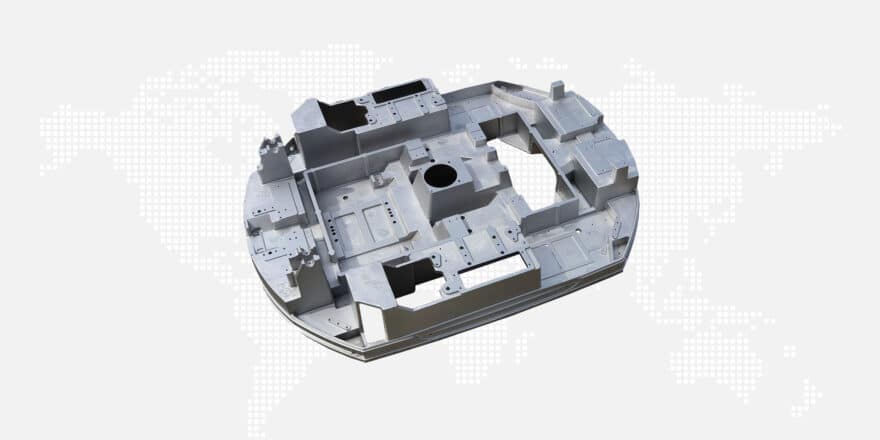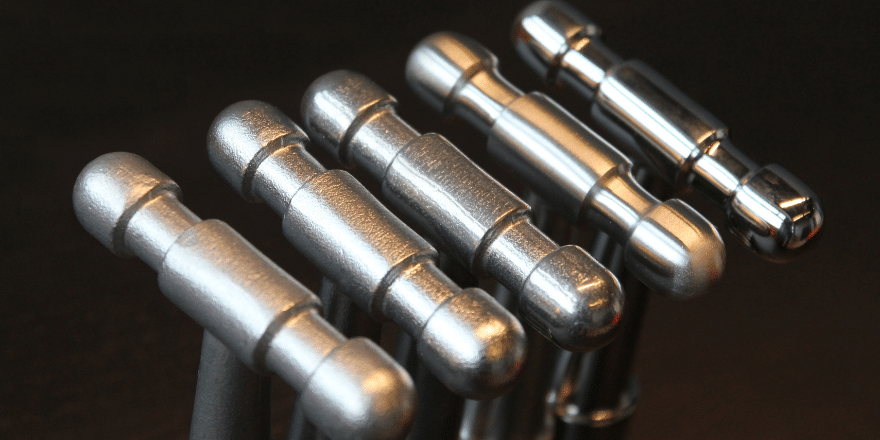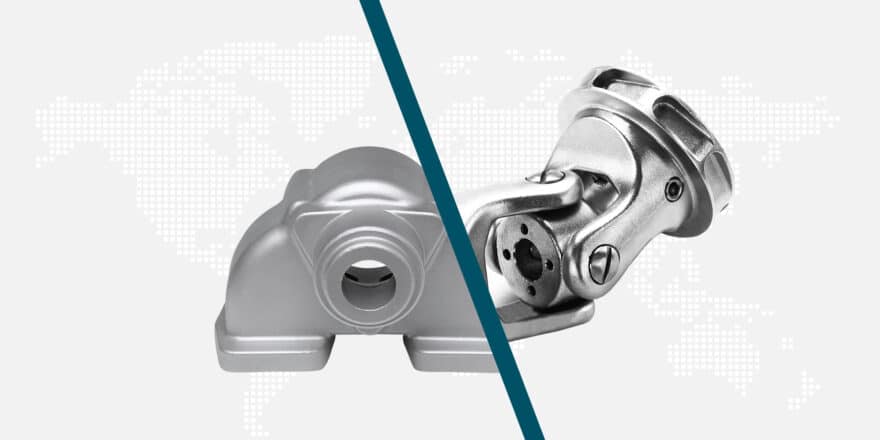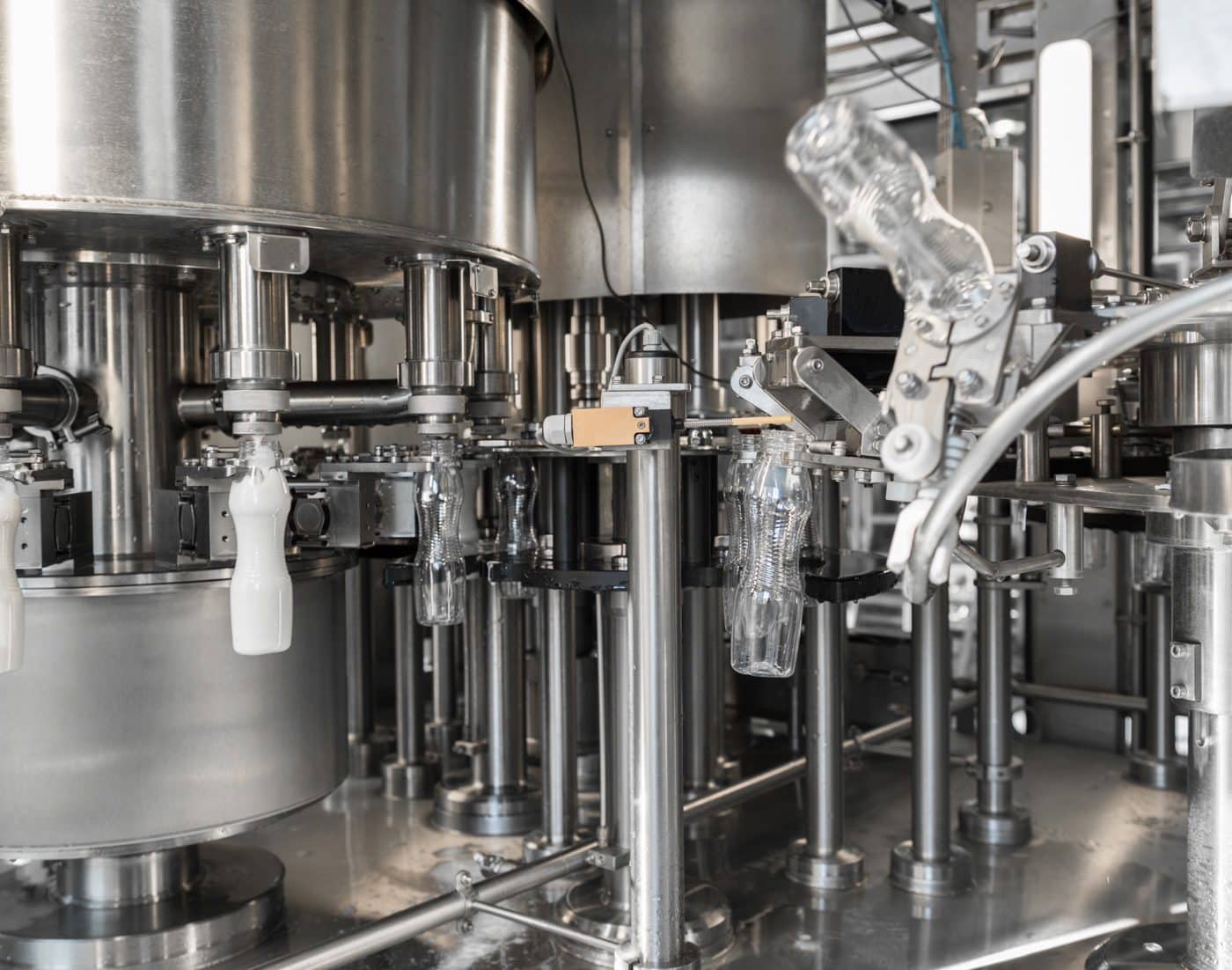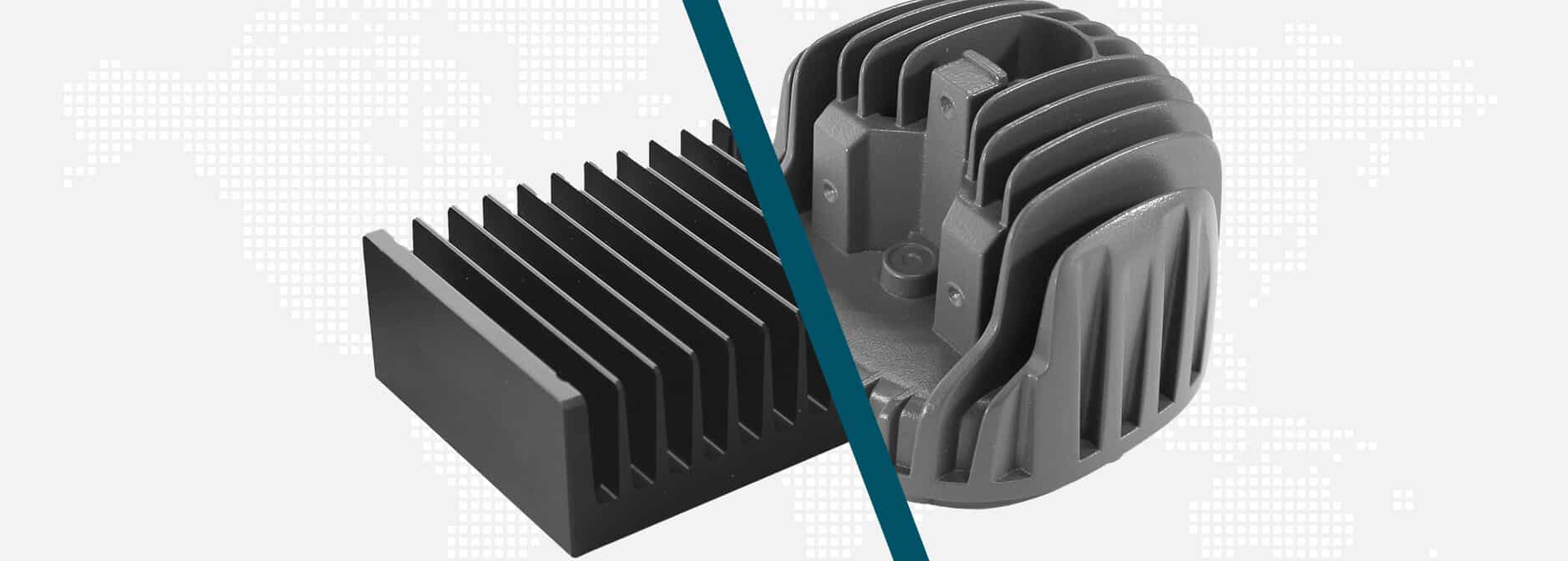
ALUMINIUM CASTING AS AN ALTERNATIVE TO EXTRUSION
WHAT IS THE BEST FIT FOR YOUR PRODUCTION NEEDS
Aluminium casting can be a cost-effective alternative to extrusion, especially when dealing with complex designs, larger production runs, or specific material requirements. Extrusion is a manufacturing process in which material, such as metal or plastic, is forced through a die to create long straight profiles. This process is cost-efficient for simple, linear forms but has limitations with more complex geometries. As a buyer or engineer, you are constantly seeking ways to optimise costs without compromising the quality of your product. Exploring casting techniques can lead to cost savings and more efficient production processes. In this blog, we will discuss when aluminium casting may be an attractive option and what to consider when choosing between casting and extrusion.
DESIGN COMPLEXITY
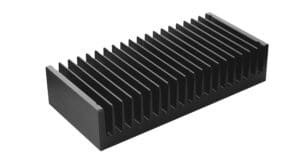 Extrusion works well for straight, uniform parts but soon encounters limitations when the design becomes more complex. Aluminium casting offers a clear advantage in this regard. For example, when dealing with aluminium parts that have hollow structures, branches, or other intricate shapes, casting can be the ideal solution. If you are considering modifying the design of your part or adding advanced geometries, aluminium casting provides much greater design freedom. Extrusion remains limited to simpler, more linear work.
Extrusion works well for straight, uniform parts but soon encounters limitations when the design becomes more complex. Aluminium casting offers a clear advantage in this regard. For example, when dealing with aluminium parts that have hollow structures, branches, or other intricate shapes, casting can be the ideal solution. If you are considering modifying the design of your part or adding advanced geometries, aluminium casting provides much greater design freedom. Extrusion remains limited to simpler, more linear work.
- Casting: for more complex designs and larger production runs.
- Extrusion: for simple, straight shapes.
MATERIAL CHOICE AND ALLOYS
Aluminium is a commonly used material in both extrusion and casting, but extrusion has its limitations concerning material variety. Extrusion works excellently for lighter metals such as aluminium and plastics; however, the options are more restricted when dealing with heavier metals like steel or bronze. Aluminium casting allows for a broader range of metals and alloys to be utilised, making it ideal for applications with stringent material requirements, such as parts that need to withstand extreme temperatures or heavy mechanical loads. If your product requires the properties of an advanced alloy that is difficult to extrude, aluminium casting may be the only option to achieve the desired strength and durability.
- Casting: significant flexibility in material choice, including heavier metals and advanced alloys like steel and bronze.
- Extrusion: limited material choice, typically suited for lighter metals such as aluminium and plastics.
ALUMINIUM CASTING: WHEN IS IT MORE ADVANTAGEOUS AND EFFICIENT?
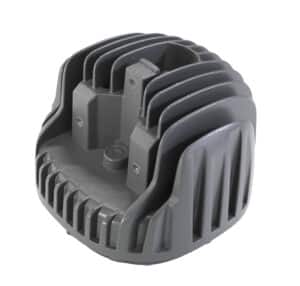 The initial investment in a casting mould may be higher, but for larger quantities, the cost per part decreases significantly due to economies of scale. This makes aluminium casting more appealing for larger production runs or when parts are more complex, as it allows for parts to be produced directly from the mould with minimal post-processing. This saves time and costs compared to extrusion, which often requires more post-processing to achieve the desired dimensions and shapes.
The initial investment in a casting mould may be higher, but for larger quantities, the cost per part decreases significantly due to economies of scale. This makes aluminium casting more appealing for larger production runs or when parts are more complex, as it allows for parts to be produced directly from the mould with minimal post-processing. This saves time and costs compared to extrusion, which often requires more post-processing to achieve the desired dimensions and shapes.
- Casting: higher initial costs for moulds, but lower costs per part at larger volumes. Less post-processing needed.
- Extrusion: lower start-up costs and cost-effective for simple shapes, but often requires more post-processing, resulting in higher costs per product at large volumes.
TRANSITIONING FROM EXTRUSION TO ALUMINIUM CASTING: WHAT SHOULD YOU CONSIDER?
If you are considering switching from the production of extruded parts to aluminium casting, it is important to evaluate several key factors. These include design requirements, material specifications, and production volumes. Aluminium casting offers many advantages, such as the ability to create more complex parts and process a wider range of materials. The initial investment in creating casting moulds must be carefully weighed against the long-term benefits of lower costs per part and shorter production times. Extrusion is often chosen for its simplicity and cost-effectiveness for straight and simple shapes. However, aluminium casting provides an attractive alternative, as it allows for the realisation of more complex designs, meets higher material requirements, and can reduce costs per part in the long run.
- Casting: benefits for more complex designs, larger production runs, and a wider material selection. Higher initial investment, but lower long-term costs.
- Extrusion: advantageous for straight and simple parts. Less flexible for more complex applications and requires more post-processing, but lower initial costs.
ADVICE ON YOUR ALUMINIUM CASTING PROJECT
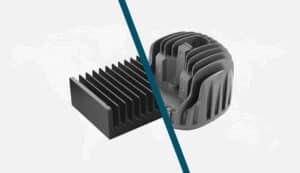 At ELCEE, we are happy to assist you in choosing the right manufacturing method for your parts. Whether you are working with simple aluminium extrusion profiles or advanced cast components, our team offers the expertise to find the best solution. Contact us to discover how aluminium casting can help optimize your production process.
At ELCEE, we are happy to assist you in choosing the right manufacturing method for your parts. Whether you are working with simple aluminium extrusion profiles or advanced cast components, our team offers the expertise to find the best solution. Contact us to discover how aluminium casting can help optimize your production process.


